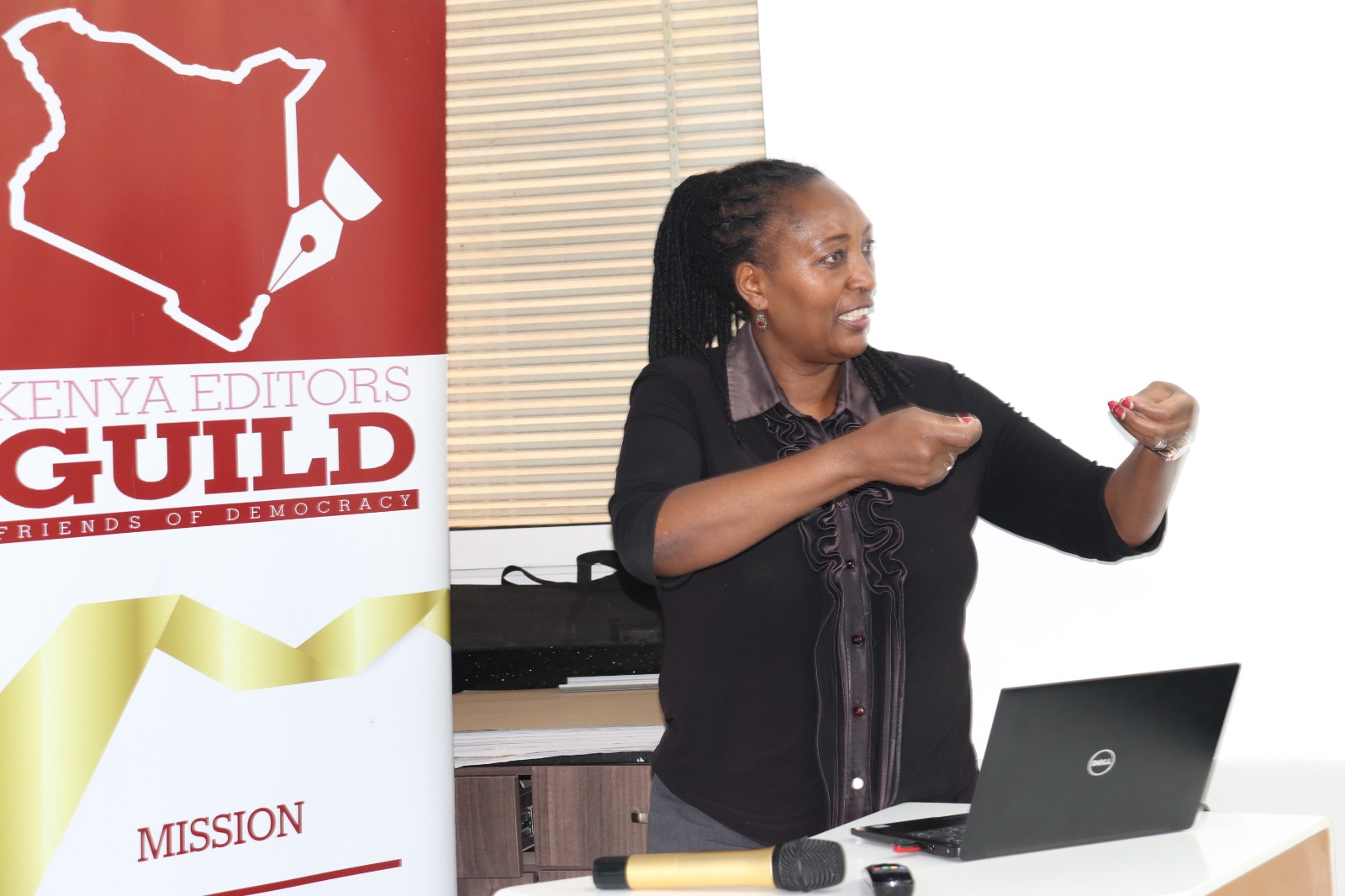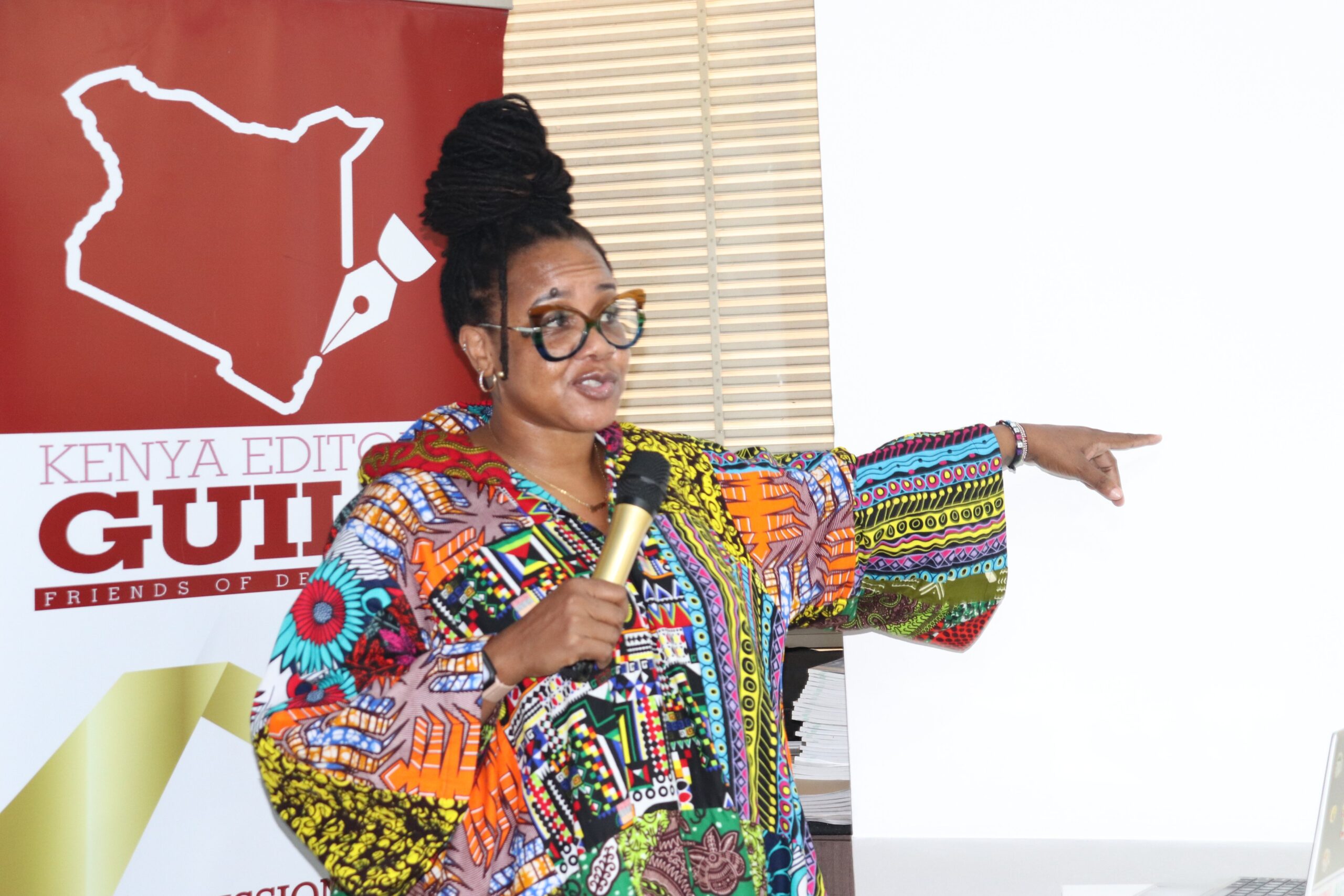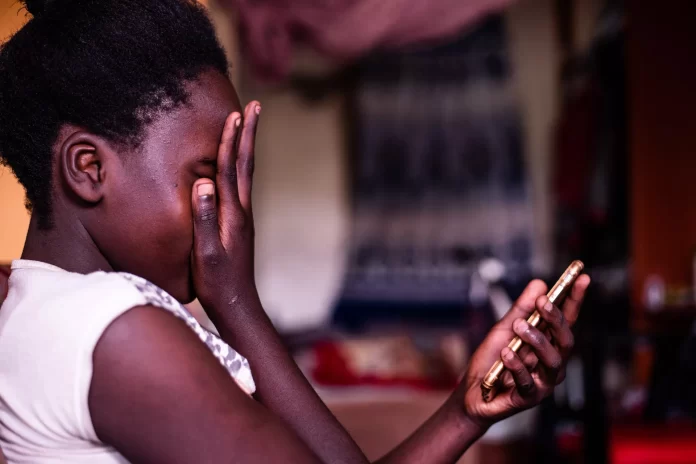By Mercy Kachenge
Nairobi, Kenya:In light of the alarming increase in Online Child Sexual Abuse and Exploitation (OCSEA) in Kenya, a recent report from Child Fund Kenya underscores the need for a comprehensive strategy to combat and eliminate child abuse among vulnerable children in Kenya.
According to the 2021 Disrupting Harm in Kenya Report, over 50% of surveyed frontline workers believe that majority of child abuse cases go unreported due to the public distrust of government services. The report also highlights that 61% of surveyed children aged 12-17 were not sure where to get support if they experience sexual abuse.
Organizations such us Child Fund, Ministry of Labour and Social Protection among others address it through social media platforms like WhatsApp, Facebook, emails has ensured that avenues for combatting online child abuse are available for such cases.

In the past year, 7% of children have had their sexual images shared with others without their permission. Most children who experienced some form of online sexual exploitation and abuse had also experienced in-person physical, sexual or emotional abuse.
However, these platforms encounter a myriad of challenges such as internet accessibility in rural areas making the digital fight against OCSEA become a complex battle.
Rose Mwangi of the Directorate of Children Services (DCS) noted during recent training with Editors “We are focused in building capacity of children to enable them protect themselves and ensure they have the firstling of defence. We need to find them in their spaces” she said.
Chilldline Kenya a public private partnership organization is at the forefront of eliminating child abuse in Kenya, offers a toll free helpline 116 that ensures victims, survivors or perpetrators of child abuse are being referred to services ranging from the Directorate of Criminal Investigations (DCI), police and hospitals.
Muema, Project Coordinator at Child Fund, emphasizes on the need of parents being proactive in terms of monitoring online activities that children engage in so as to bar them from dark web activities
“Development of OCSEA Standard Operating Procedures (SOPs) and inter-Agency coordination will ensure it supports the Directorate of Children Services (DCS) to develop a national OCSEA manual and child friendly outreach tools,” he said.
According to a child protection advocate from the Government the urge for an increased national government funding for online child protection agencies and activation of the victim protection trust fund is needed.
Chege Ngugi, Africa Regional Director at Child Fund reveals that online grooming among children has remained to be a critical issue that needs to be dealt with as well as putting more effort to combat it. Additionally, inadequate laws and services, including fledgling technology-based surveillance systems and severely underdeveloped digital forensics capacity have created an opportunity and a fertile ground for potential sex criminals.
“The key question for African countries is whether or not they are adequately prepared to provide greater protection and safeguarding for children online.”
According to Childnet, Online grooming is where someone befriends a child online and builds up their trust with the intention of exploiting them and causing them harm.
Awino Nyamolo comms specialist @ChildFund presents on #Childfriendlyreporting in the digital era.
The way we report should be child friendly & child sensitive as possible.
Key principles in child-friendly reporting;
1. Accuracy
2. Sensitivity
3. Confidentiality
4. Empowerment pic.twitter.com/Z1SHfH7mfw— Kenya Editors’ Guild (@KenyaEditors) July 2, 2024
According to a recent Survey of Parents on Online Sexual Exploitation of Children 2023 shows an overwhelming 95% of parents say that they want stronger regulations for social media companies. And 93% think these companies aren’t doing enough to keep children safe. Tech companies have the tools and ability to monitor their platforms and make real, meaningful changes to respond to this ever-growing threat – and yet – they have done nothing.
According to the report by Child Fund, in 2022 , more than 31.9 million reports of online material featuring children in suspected sexual exploitation and abuse situations – that’s 88.3 million images, videos and other content – were submitted to the National Center for Missing & Exploited Children (NCMEC), a staggering 88% increase in reports since 2019.
According to a joint research conducted by End Child Prostitution and Trafficking (ECPAT) network, International Police(INTERPOL) and UNICEF accounts that 67% of children aged 12-17 in Kenya are internet users with 7 percent having been offered money in exchange for sexual images, while 3% have been blackmailed online to engage in sexual activities. This underscores the need for enhancing protective measures to safeguard them from sexual exploitation pervasive threat from the dark web.

The criminal justice process must be sensitive to the needs of children through developing and implementing guidelines on interviewing children that can prevent them from having to relive traumatic experiences through repeated questioning.
Kenyan Ministry of Labor and Social Protection Directorate need to collaborate with data protection organizations in order for them to ensure that content shared online on websites such as YouTube are free from child abuse.
Combating Online Child Sexual Exploitation and Abuse (OCSEA) requires a coordinated effort from all sectors of the society and strengthening victim support requires comprehensive and sustained actions from everyone who is responsible to tackle this growing problem, including government duty bearers, law enforcement agencies, justice and social support service professionals, internet providers, the technology industry ,communities, teachers and caregivers.
“We all play a part in the protection of a child.It cannot be left to one single entity, it must be multi disciplinary. We need to be proactive in the prevention of violation of child rights rather than responding” noted Rose Mwangi of DCS.
Provide public financial support to the national children’s helpline Childline Kenya to ensure its sustainability and improve its ability to provide psychosocial support to children, including for OCSEA related issues. Moreover, expanding the Anti-Human Trafficking and Child Protection Unit (AHT CPU) to more regions and strengthening the links between the AHT CPU and Directorate of Criminal Investigations (DCI) offices at the county level.














